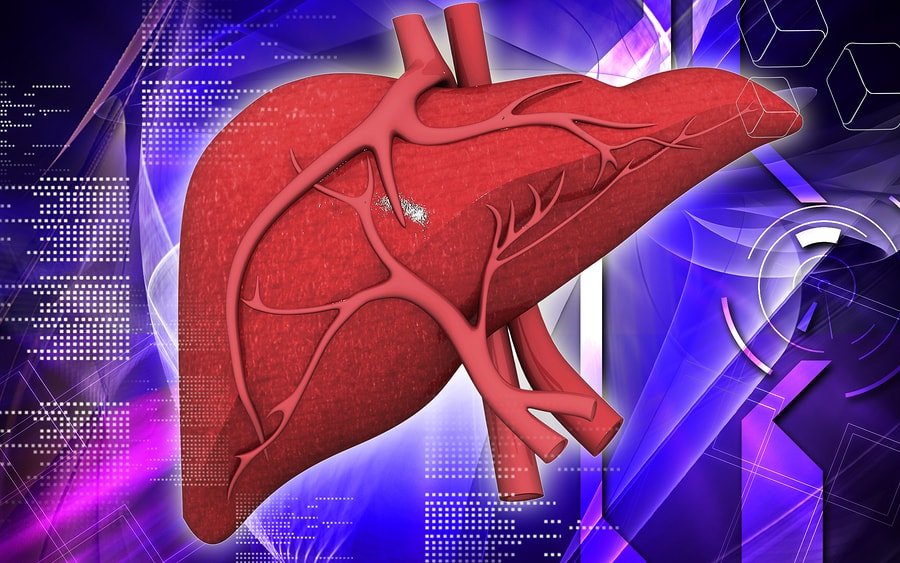
The Farnesoid-X receptor is a nuclear receptor that plays a major role in carbohydrate and lipid metabolism.
What is Farnesoid-X receptor (FXR)?
The Farnesoid-X receptor (FXR) also known as bile acid receptor (BAR) or NR1H4 (nuclear receptor subfamily 1, group H, member 4) is a nuclear receptor that is encoded by the NR1H4 gene in humans [1].
This hormone receptor is responsible for the homeostasis of bile acids, lipids, and glucose [2].
FXR maintains homeostasis in bile acids, lipids, and glucose by regulating a diverse array of genes involved in bile acid, lipid, and glucose metabolism [3].
FXR plays a crucial role in the metabolism of carbohydrates and lipids as well as the regulation of insulin sensitivity. It is found in high amounts in the liver, intestines, and kidney [4].
Effects of FXR
1) Protects the Liver and Supports the Metabolism of Bile Acids
In the liver, Farnesoid X Receptor regulates bile acid synthesis, conjugation, and transport [5].
FXR also regulates the expression of bile acid-CoA synthetase (BACS) and bile acid-CoA amino acid N-acyltransferase (BAT) which increase the solubility of bile acids [6].
According to one research study FXRs [4].
- modulates growth and regeneration during a liver injury
- protect against cholestasis-induced liver injury (flow of bile from liver stops or decreases)
- activation increases glucose intolerance and insulin sensitivity in the liver
Farnesoid X receptor plays a crucial role in liver triglyceride homeostasis and protects against fatty liver injury in animal models of nonalcoholic fatty liver disease (NAFLD) [7].
In a double-blind, placebo-controlled clinical trial, OCA (an FXR agonist) administration decreased alkaline phosphatase levels in patients when compared to the placebo group [8].
2) Effects of FXR on Lipid and Glucose Metabolism
FXR regulates various aspects of lipid and glucose metabolism [5].
In a study with individuals given FXR activators, high-density lipoprotein levels decreased and low-density lipoprotein levels increased [6]. This demonstrated that bile acids regulate lipid homeostasis indirectly through FXR activation.
In a diabetes study done with mice, activation of FXR resulted in reduced plasma glucose levels and increased insulin sensitivity [9].
FXR also influences insulin sensitivity of tissues that are not part of the bile circulation like the adipose tissue [10].
Animals with drug-induced diabetes show a decrease of FXR gene expression [11].
In a clinical trial, OCA (an FXR agonist) increased insulin sensitivity and reduced markers of liver inflammation and fibrosis [4].
3) May Help with Intestinal Disorders
In mice, intraperitoneal administration of GW4064 (an FXR agonist) prevented ovalbumin-induced diarrhea and CTX-induced intestinal fluid accumulation. This data suggests a novel antisecretory role of FXR [12].
4) Regulates Cholesterol Metabolism
FXR regulates cholesterol metabolism in two ways [13].
- Chenodeoxycholic acid (CDCA), a primary bile acid binds to and activates FXR which mediates the feedback suppression of cholesterol 7 alpha-hydroxylase (CYP7A1) the rate-limiting enzyme for bile acid synthesis from cholesterol.
- FXR participates in the activation of Intestinal Bile acid binding protein (IBABP), which is involved in the enterohepatic circulation of bile acids.
Thus FXR constitutes a potential therapeutic target that can be modulated to enhance the removal of cholesterol from the body.
5) Energy Metabolism
FXR serves as an instrumental transcription factor in regulating cellular and systemic energy metabolism [3].
FXR plays a part in cell survival while it exerts antioxidative and cytoprotective effects.
6) Genes
FXR can activate and repress the expression of target genes by a process of trans-expression which involves interference with the binding of activation complexes at the repressed gene [6].
FXR monomers can activate gene expression at certain target genes.
7) The Brain
In a study, FXR expression was identified in mouse brain neurons and in mouse/human brain tissues. FXR expression was found in the nucleus and in the cytoplasm [14].
However, very little is currently known about FXR expression in neurons. Ongoing research is currently underway.
Increasing FXR
Guggul is an FXR antagonist
Technical
- Bile acids are synthesized in the liver and secreted through the bile into the intestines. In the intestines, these acids aid the process of absorbing fat-soluble vitamins and dietary fat [5].
- FXR reduces the gene CYP7A1 [17]. CYP7A1 enzymes limit the rate of bile acid synthesis [6].
- The genes encoding the transporters involved in the efflux of bile acids from the hepatocytes to bile canaliculi are induced by FXR. These transporters are MRP2, MDR3, and BSEP [6].
- FXR represses the transcriptional regulator SREBP-1c. SREBP-1c, in turn, regulates the expression of various genes associated with fatty acid and triglyceride synthesis [6].
- FXR increases the expression of apoC-II and decreases the expression of apoC-III.
- FXR activation results in the reduced expression of two enzymes: PEPCK and glucose-6-phosphate [6].
- FXR activation in the liver also results in increased expression of receptors that are involved in lipoprotein clearance (VLDL receptor and syndecan-1) [6].
- Fatty acid oxidation is enhanced by FXR via its ability to activate transcription of PPARa which is a transcription factor that promotes the β-oxidation of fatty acids [6].
